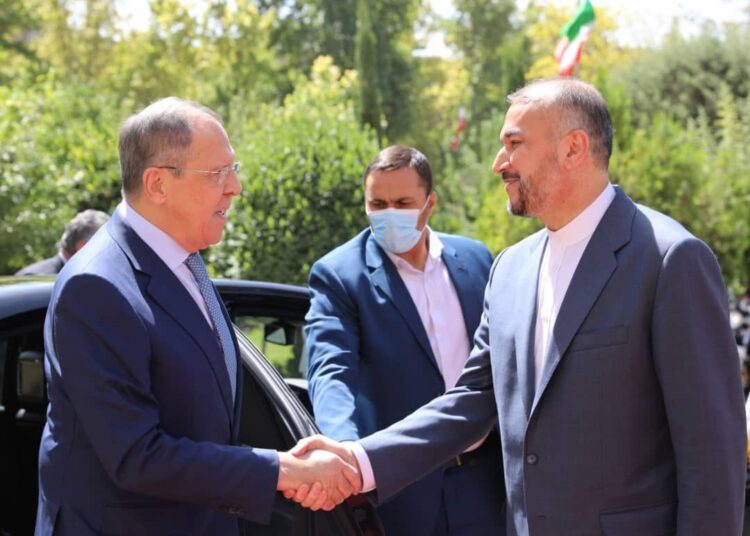In an effort to mitigate the recent tensions in bilateral relations, the foreign ministers of Iran and Russia, Hossein Amirabdollahian and Sergey Lavrov respectively, have taken steps in engaging in a diplomatic dialogue. The conversation, held over a telephone call on Tuesday, July 18, centered on bilateral issues and addressing regional developments.
As detailed in the readout furnished by Iran’s Ministry of Foreign Affairs, during the discourse, Amirabdollahian expressed his disconcertment regarding the recent joint statement made by Russia and the Southern Persian Gulf countries. He spotlighted a particular clause pertaining to the three Iranian islands in the Persian Gulf. He asserted emphatically that the islands have an immutable connection to Iran, a bond etched in history and time.
In no uncertain terms, the Iranian foreign minister emphasized that issues concerning the “independence, sovereignty, and territorial integrity of the Islamic Republic of Iran are non-negotiable”. Equally, he underlined the importance of the robust foundations underpinning Iran-Russia relations, cautioning against actions that might imperil such deep-rooted bilateral ties.
In response, Lavrov, representing the Russian Federation, affirmed Russia’s commitment to uphold the principles enshrined in the United Nations Charter, which underscores the sovereignty and territorial integrity of countries. He made it clear that “The Russian Federation has no doubts about the sovereignty and territorial integrity of the Islamic Republic of Iran, and it fully respects and supports it”.
The Russian Ministry of Foreign Affairs’ summary of the call echoed those sentiments. Both sides accentuated their adherence to the tenets of international law codified in the United Nations Charter, in their entirety and their mutual relationship, including their respect for sovereignty and territorial integrity of countries.
This telephonic dialogue followed a verbal dispute that arose due to a recent joint statement by Russia and the Persian Gulf states. The contentious statement saw Moscow and the other signatories supporting the United Arab Emirates’ stance concerning the three islands of Greater Tunb, Lesser Tunb, and Abu Musa. Their proposed resolution was to focus on bilateral negotiations or defer to the International Court of Justice. In response, the Iranian Foreign Ministry was quick to summon the Russian ambassador for clarifications on the newfound stance adopted by Moscow. Concurrently, various Iranian officials publicly voiced their objections to the contents of the disputed statement.






